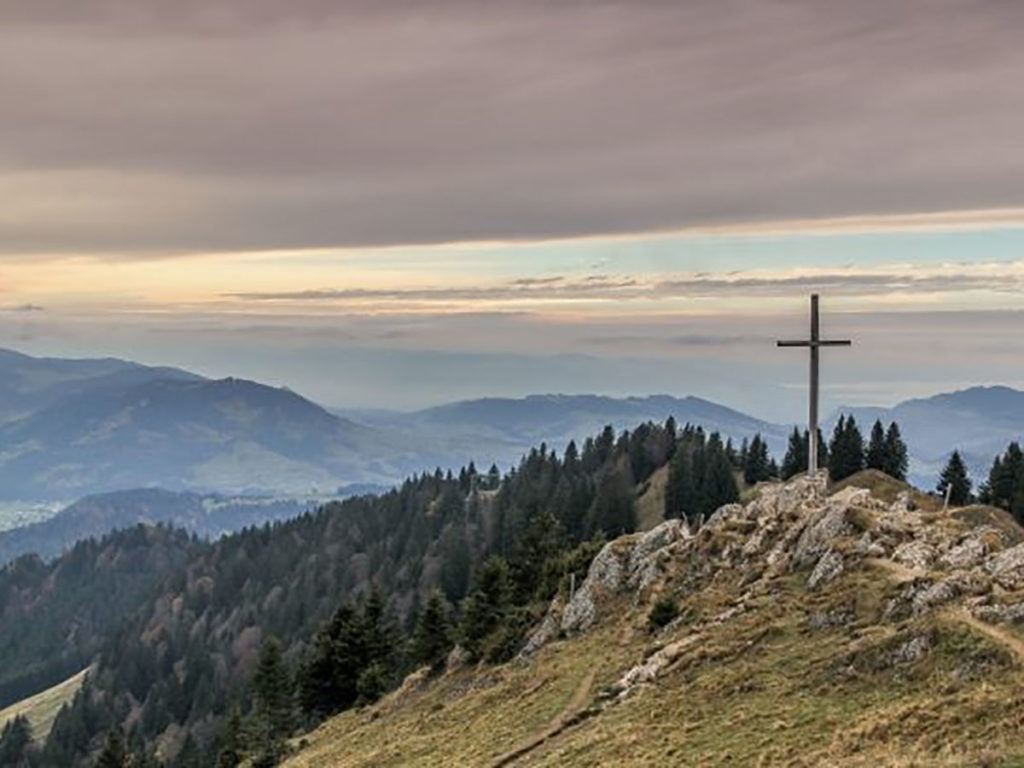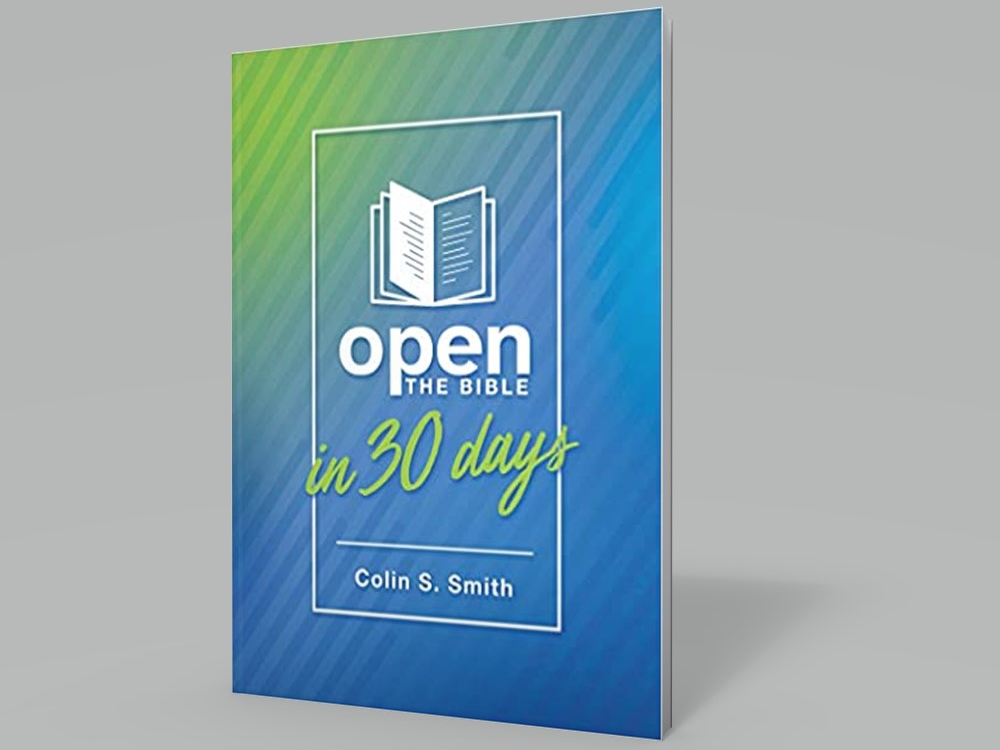The crowd hurled abuse at Jesus for three hours, and then something wholly unexpected happened: “At noon, darkness came over the whole land until three in the afternoon” (Mark 15:33).
Jesus had said, “I am the light of the world” (John 8:12; 9:5). When men chose to extinguish that light, God covered the land with darkness. And the events that took place in these three hours of darkness take us to the heart of the Bible story.
The Sacrifice
In Old Testament times, God’s people performed a yearly ritual in which the high priest placed his hands on a goat and confessed the sins of the people over the head of the animal. God told the priest to put the sins of the people on the goat’s head (Leviticus 16:21). The ritual was an illustration of how God would remove our guilt by transferring it to another place.
This theme runs throughout the Bible. The Old Testament prophet Isaiah spoke about the sufferings of the Messiah and said, “The LORD has laid on him the iniquity of us all” (Isaiah 53:6). God placed our sins on the Messiah, and He carried them as if they were His own.
In the New Testament, John the Baptist identified Jesus as “the Lamb of God, who takes away the sin of the world” (John 1:29). He would accomplish what all the Old Testament sacrifices had illustrated.
The apostle Peter described what happened to Jesus in the darkness in these words: “‘He himself bore our sins’ in his body on the cross” (1 Peter 2:24). The apostle Paul put it this way: “God made him who had no sin to be sin for us” (2 Corinthians 5:21).
The whole Bible bears witness to this central, mysterious, and wonderful truth, that Jesus bore the guilt of our sins in His death on the cross.
It is not surprising that God shrouded this awesome event in darkness. Try to picture your sin as a load that you carry. God the Father lifted that load and placed it on Jesus, who carried it for you. Jesus died bearing the sins of the world. We cannot begin to imagine what that meant to the holy Son of God.
Hell on Earth
When Jesus carried our sins, He also endured every dimension of the consequences they bring. The perfect Son of God became the guilty one in the eyes of the Father, and Jesus experienced the full force of sin’s punishment poured out on Him.
Sin separates us from God, and during these awful hours of darkness, the comfort of the Father’s love was taken from the Son. Christ entered into all the dimensions of hell on the cross, and from the depth of His agony He cried out in a loud voice, “My God, my God, why have you forsaken me?” (Matthew 27:46).
Jesus was the lightning rod for God’s judgment. By absorbing the full force of the penalty of human sin in His own body, He opened the way for others to be saved from the judgment of God. He had prayed that others would be forgiven, and through His death, He made this possible.
This is a moment to pause and worship. We cannot fathom what the cross must have meant to God the Father and God the Son. What must it have been like for the Father to give up the Son for us? What must it have been like for the Son to be plunged into the depths of hell? All we know is that in the darkness the Son was forsaken by the Father. The Father turned away from the Son. God was forsaken by God.
Mission Accomplished
After three hours, the darkness passed and Jesus cried out, “It is finished” (John 19:30). These words were a declaration of triumph. The storm was over. The judgment poured out on Christ was exhausted, fully spent. Everything that needed to be done to reconcile men and women to God had been accomplished. Sin had been dealt with, justice had been satisfied, and Jesus had completed everything that the Father had given Him to do.
Now all that remained was for Jesus to lay down His life. He called out with a loud voice, “Father, into your hands I commit my spirit” (Luke 23:46). The life of Jesus was not taken from Him (John 10:18). He gave Himself for us (Galatians 2:20).
“The Son of God”
A centurion and several of his men had been posted to guard the cross of Jesus. Their task was to make sure that nobody could save Jesus from death. They had guarded the cross throughout the entire six hours of Jesus’ crucifixion and had witnessed everything that happened.
Earlier the soldiers had joined with the crowd in taunting Jesus. But the sudden, unnatural darkness at midday silenced everyone. Then, at the moment Jesus died, the earth began to shake. The sudden darkness followed by the earthquake terrified the soldiers standing at the foot of the cross, and they confessed, “Surely he was the Son of God!” (Matthew 27:54).
The crowd who had watched Jesus suffer and die went home in shock and horror. They had been convinced that they were honoring God by crucifying Jesus. But nobody could doubt that the hand of God had been in the darkness and the earthquake. What would the future hold if they had crucified the Son of God?
A View from the Darkest Valley
The day that Jesus died was the darkest day in human history. Lifted up on a cross, Jesus was suspended between earth and heaven, rejected by the one and forsaken by the other. But we call this day Good Friday, because everything God had promised to do since the beginning of time was accomplished by the death of the Lord Jesus Christ on the cross.
Bearing our sin, He made it possible for us to be righteous before God. Being forsaken by the Father, He opened the way for us to be reconciled to God. Entering into the depths of hell, He opened the way into heaven.
The unfathomable suffering of Jesus in the darkness is the lowest point in the Bible story. But the deepest valley leads directly to the highest mountain.


